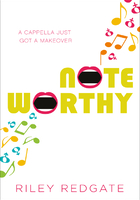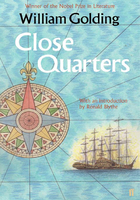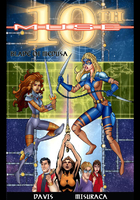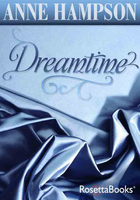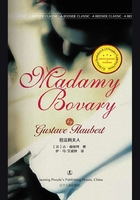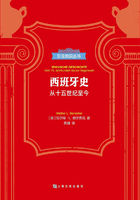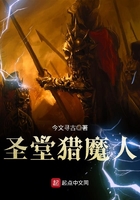"BLUE MONDAY"
You know how, when you graduated high school and went on to college, you got the chance to totally make yourself over? How you got new clothes, a new personality, and a new hairstyle, and you invented a whole new backstory to win yourself a cool new group of friends to replace all those losers you left behind? That's what happened to the most prominent guttersnipes of British punk when they outgrew spitting and safety pins. PIL were nothing like the Sex Pistols. Big Audio Dynamite were nothing like the Clash. The Style Council were nothing like the Jam. New Order, though, were exactly like Joy Division … until "Blue Monday." The first few records they made following the 1980 suicide of Ian Curtis sounded like the ghost of their singer was still haunting them. But "Blue Monday" changed everything. It turned New Order into a dance-floor mainstay, gave them a new, worldwide audience and the bestselling 12-inch single of all time, paid for the Ha?ienda (laying the foundation for their native Manchester to become Madchester), and kept them around for the next 30-something years. It also lit the spark for a simmering feud between creative collaborators Bernard Sumner and Peter Hook that would boil over more than three decades later.
LM: When I saw New Order at Jones Beach on Long Island in the late eighties, it was like that moment in The Wizard of Oz when Dorothy sees the real Oz behind the curtain. Unlike the other groups I liked, these guys wore regular-Joe clothes. Sumner was the most nondescript frontman I'd ever seen. No wonder they don't put their photos on the record sleeves, I thought. Still, there was no denying Hooky's rock-god bass playing. Also, New Order had risen from the ashes of Joy Division, inarguably one of the coolest bands ever. And think about this: The list of musicians who graduated from one successful group to another includes Paul McCartney, Ron Wood, Eric Clapton, and Dave Grohl, yet none of them have been in two consecutive game changers like Sumner, Hook, and drummer Steven Morris.
JB: This isn't in my top-five New Order songs. I'd put it behind "True Faith," "Bizarre Love Triangle," "Subculture," and "Age of Consent." I'd probably put it behind "Regret" too. But that doesn't mean that I don't know what a monster it was or that I underestimate its importance. "Blue Monday" utilized all the traditional components of an electronic-dance record, except it omitted any sense of liberation, any chance of escape. Sounding weary and desolate has always been second nature to Bernard Sumner, but hearing him moan, "How does it feel when your heart grows cold?" accompanied by the remorseless grind of machines was especially chilling. "Blue Monday" was a big black cloud hanging over the dance floor. It was the soundtrack to a bleak, dehumanizing future. And it sounded fantastic.
BERNARD SUMNER: After Ian Curtis died, we were all very upset and depressed and, obviously, in shock. When we started releasing stuff like Movement, we got a completely negative response from the press, and that sadness turned into anger. It was like, "Come on, give us a break. Can't you just help us out in our hour of need instead of sticking the knife in?" Because the British press can be pretty sadistic. "Blue Monday" was kind of a response to that. It was like, "Fuck you! Here's what we can do."
"Blue Monday" came out, and the press really stuck the knife in—again! They said it was a pile of shit, and it was rubbish and that no one would buy it. And here we are, all these years later….
When we released "Blue Monday," a lot of people who knew us were like, "That doesn't sound like New Order." But that was the point. It's not really our best song, but it was designed like a machine to make people dance. I felt a bit uncomfortable doing music that was just like Joy Division. And as a singer, I felt uncomfortable stepping into Ian's shoes, because I didn't want to sound like an Ian Curtis impersonator. I think the first New Order album, Movement, was kind of pseudo–Joy Division but with a different singer. It didn't feel true to me. I wanted to do something that had a different flavor. It was synergy, really, that electronic music—it wasn't born but it blossomed then.
After the death of Ian, we recorded two New Order tracks, "Ceremony" and "In a Lonely Place," in New Jersey somewhere, then every night we'd drive back into Manhattan and go out to nightclubs. So we were influenced by what we were hearing in New York nightclubs and by what we heard in London. I also had a friend in Germany who was sending me 12-inch singles from there.
And I was technically minded. You couldn't buy computers then, so I built a music sequencer. You could buy a music sequencer, but it'd cost you the same as buying a house. So with the help of a scientist who worked with us, I built this synthesizer and music sequencer on the cheap, and we put the two together. Just at that time, the DMX drum machine came out, so we got the scientist to design us a little box that could make them all speak to each other, and we made "Blue Monday" with it.
"Blue Monday" spread because it's a club record, and it caught DJs' attention. It was at the vanguard of electronic dance music. We were on Factory Records, who had a promotional budget of nothing. Zero. They didn't believe in promotion, we didn't do many interviews about it, and somehow we ended up with this worldwide hit.
In England, it kept going in the charts year after year as it got through to a different crowd. People would come back from their summer holidays, and it had been played in places like Ibiza, and suddenly it'd go back up in the charts again.
PETER HOOK: We find that most people are either Joy Division fans or New Order fans. It's very rare to find one who likes both, because they're quite different. Joy Division and New Order existed during very different periods. When New Order came about, times were more fun—everything lightened up.
New Order's way of coping with the grief of Ian's death was to ignore Joy Division. And you must admit, it worked. New Order became successful all around the world, if not more successful than Joy Division. The trouble was, because we were so young, we were happy to avoid the grief. Looking back now, as a 56-year-old man, I realize, with all of the people I've lost, that grieving is a very important process.
"New Order's way of coping with the grief of Ian's death was to ignore Joy Division. And you must admit, it worked."
When we did play the Joy Division stuff, Bernard didn't like it. He felt it was miserable. It's a bit of a crass way of putting it, but I understand what he meant. New Order is much poppier, much lighter, much more optimistic. Joy Division's stuff is very dark—you could say gloomy. Plus, he wrote the New Order stuff, so I suppose that means a lot more to Bernard than the Joy Division stuff did.
"Blue Monday" was an experiment in seeing how much we could get the sequencers to do, and we did get them to do a hell of a lot. The fact that "Blue Monday" still sounds as good now as it did 30 years ago is incredible. I'm going to blow me own trumpet: We certainly have a knack for making fantastic music. Me and Mike Johnson, who was the engineer, worked really, really hard, along with Bernard and Steven, to make "Blue Monday" sonically exciting. Bernard and Steven, in particular, were very interested in experimenting with the new technology. I must admit, I wasn't very interested in it. I preferred to rock out. It was that combination of me wanting to be in a rock band and them wanting to be a disco band that gave us our unique sound. We were listening to Sparks, Giorgio Moroder, Suicide, Kraftwerk. And also, in New York we were taken to many clubs: Tier 3, Hurrah. And you were like, "Wow, this is so different to England," that it had an influence on you.
"Blue Monday" was meant to be an instrumental closer to the show. In the studio we just thought we'd have a go at putting lyrics over it. The lyrics and the vocal were the absolute last things that went on. They were done at four o'clock in the morning, right at the end, when the song was written and nearly produced. The lyrics were very much an afterthought, and I think the reluctance to put them on can be heard. But strangely enough, it works. The deadpan, off-beat delivery actually works great as a contrast with the music: How. Does it. Feel. It's such a juxtaposition, isn't it?
With Ian gone, we all tried to be New Order's singer. Our producer, Martin Hannett, hated us all—Bernard just had the last go. But realistically, with Bernard adding the guitar after he sang, it managed to give you a new style. So he would sing, Steve and I would play, then, when he'd stop singing, he would play guitar. And that gave it the lift, the up and down, the light and dark, that became the New Order sound.
"Blue Monday" was recorded in conjunction with about 10 other songs: "Temptation," "Everything's Gone Green," "Thieves like Us."… It was competing with many other songs in our hearts, if you like. It was nearly seven and a half minutes long, and we were asked to cut it down, but we just didn't do it. However, we did agree to do a shortened version for Top of the Pops. Top of the Pops was what you watched as a child, and it was one of the only music programs that was on mainstream TV. Everything was about Top of the Pops—it was a religious ceremony. Even though you didn't like the acts on Top of the Pops most of the time, you still watched it. It was the only TV program that you could guarantee would annoy your parents, and it would educate you as to what was going on musically. So to get our act on it was an honor, and [editing the song] was something we accommodated for that reason. If you played on Top of the Pops, supposedly your single went up 15 places, guaranteed. Because we played live—we didn't mime—and sounded terrible and looked terrible, ours was the only record that went down. We were delighted about that, though. It was punk; it was chaotic; it was wild; it cocked a snoot, as we say in England. We were happy—even when the record went down the charts, we were happy.
I got the title "Blue Monday" from a book. Everybody thinks it's from the Fats Domino song, but it wasn't. It came from a fiction book. I would read voraciously in the studio. There was a sheet on the wall, and everybody would write ideas on it. Power, Corruption and Lies came from the back of 1984. "True Faith" came from a James A. Michener book on Texan Catholicism. The titles had very little to do with the songs. It was tradition, something we carried on, and a mark of excellence that we got from Joy Division. "Atmosphere," "The Eternal"—these words were never mentioned in the songs either.
MIXTAPE: 5 More Dark, Depressing, Doom-Filled Dance-Floor Classics 1. "Dr. Mabuse," Propaganda 2. "I Travel," Simple Minds 3. "Der Mussolini," D.A.F. 4. "Sensoria," Cabaret Voltaire 5. "Living in Oblivion," Anything Box
It was me and Bernard who wrote the melodies. There's long been a personality conflict there. We certainly were not friendly, shall we say. I think Bernard ever only phoned me once. The only time was to ask for a lift to rehearsals because his car battery was dead. And I must admit, I've never phoned him.
It's also ego. It was always me and him fighting for the limelight, not only on stage but musically. To me, New Order wasn't New Order unless it had the bass guitar on it, and he would go to great lengths to try and mix me out. He started trying to get me out of the music a long, long time ago. If you listen, you can hear the bass getting quieter and quieter in the songs as the struggle evolved between Bernard and me. If you look at songs like "Thieves like Us" and "Blue Monday," the bass is as loud as the vocal. Further on, the bass is not as loud as the vocal; it's disappearing. The notable one was "Bizarre Love Triangle." That was the first stand-up fight we had about how much bass was in the song. Bernard felt that the bass dated it. And actually, it's the other way around now, isn't it? You hear the bass, and it gives it a timeless quality.
We went to do "Here to Stay" with the Chemical Brothers, who were great fans of the group. The way I normally work is this: I put bass through the whole track, and then we leave it to the producer to pick the parts. Well, when we went to listen to what they'd done, Bernard and I sat there and listened with the Chemical Brothers—and they had put every bass part in throughout the whole song. Because they loved it. Bernard went fucking mad! He told me the bass was interfering with the lead vocal. It was at that point that I thought, Oh my God, this band is finished. It's only time before it goes. He got his own way, like he always did.
THAT WAS THEN
BUT THIS IS NOW
New Order's original lineup—which also included Morris's wife, keyboardist Gillian Gilbert—continued until 2007, when a frustrated Hook announced he was quitting. Sumner and Morris soldiered on without Hook and Gilbert, who'd departed to be a full-time mother. But then Sumner and Morris decided to form a new group, Bad Lieutenant. Despite Morris's declaration that "there's no future for New Order," 2011 saw a re-formation with Gilbert but not Hook. The bassist responded with a lawsuit accusing the others of touring and planning to record as New Order without compensating him. Then, in 2013, New Order released the long-delayed album The Last Sirens, the final tracks recorded while Hook was still a member. Meanwhile, Hook tours the world with his band the Light, playing Joy Division and New Order albums in their entirety. Talk about confusion!
SUMNER: We knew "Blue Monday" was a good song, but we didn't realize just how potent it was. You're too close to the trees. Go on YouTube and type in "the Jolly Boys, Blue Monday." It's two or three 80-year-old guys doing this weird, Jamaican-music version. It's fantastic.
We just played Mexico, and we had 50,000 people. Sometimes you get really young fans. I've spoken to some of them and said, "How have you heard about New Order?" This girl at the airport the other day must have been, like, 16. And they go, "Oh, my sister played it to me" or "My father played it to me." It's passed down through the family like a gold watch.
We'd been trying to get The Lost Sirens out for a long time but that's when we had the falling-out with Peter Hook, and he refused to take part in it. He refused to come to the writing sessions and was busy DJing. So we never finished those songs.
HOOK: One of the main problems toward the end of my time with New Order—not New Odor, as they are now—was that Bernard was managing the band, and if anyone upset him, they were in trouble. He became like a dictator. There's an interview with Bernard where he said that one of the problems with New Order was he wasn't allowed to change the chemistry of it, and that was absolutely correct. The chemistry of it was that I played bass on every track. You're not messing with that. You want to mess with that, go form another band. And that was exactly what he did. They now have a bass player that they can tell what to do, whereas before they had a bass player they could not tell what to do and who did what he wanted. That's what made the band fiery and interesting.
If we had sorted it out before New Order had re-formed, I could have wished them the best, could've wished them well. But because of the way they did it, I could never wish them well. What makes me laugh is when journalists take great delight in asking, "Do you think you'll ever get back with them?" Because of the group that I loved and put 32 years into, I'm fighting them tooth and nail. This is a divorce. You know when you're going through the arguments, the splitting of the CDs, who's getting half the dog, and things like that? For someone to ask me if I'm going to get back with them, it does seem strangely ridiculous at this point in time. But in the future you would hope that you and your ex would get on well, if just for the kids. I hope that we can get on well because our fans, who are our kids, would love it if we did. At the moment, we aren't.
I watched the opening ceremony of the 2012 London Olympics and heard "Blue Monday." It was fantastic, it really was. To be put into that context, part of a country's musical history, that was a fantastic compliment. What makes these arguments that New Order have between us quite stupid is the largeness of the thing we've created. To my mind, you're ruining it with the petty squabbles that you're having now, which are very, very sad.
If you read [Charlatans' singer] Tim Burgess's book, Telling Stories, he spends the whole time, the rest of his career, looking for the dead keyboard player. In a way, both Bernard and I may be looking for someone to replace Ian Curtis. If somebody of that stature came in, then maybe we would have stopped fighting. It's just that it never happened, did it?
"I watched the opening ceremony of the 2012 London Olympics and heard 'Blue Monday.' … To be put into that context, part of a country's musical history, that was a fantastic compliment."

